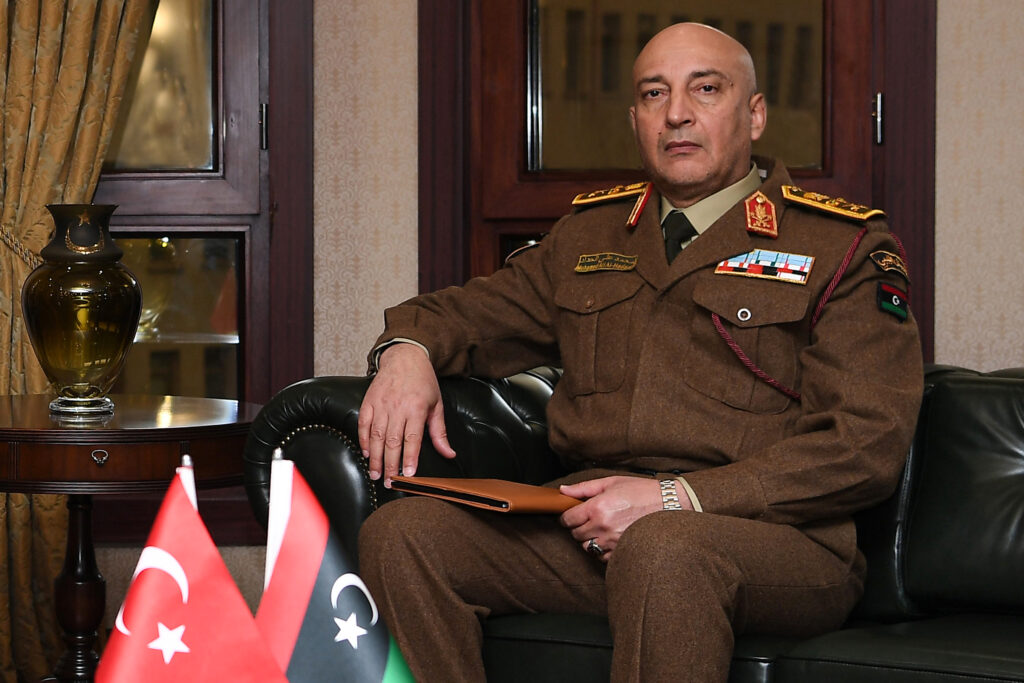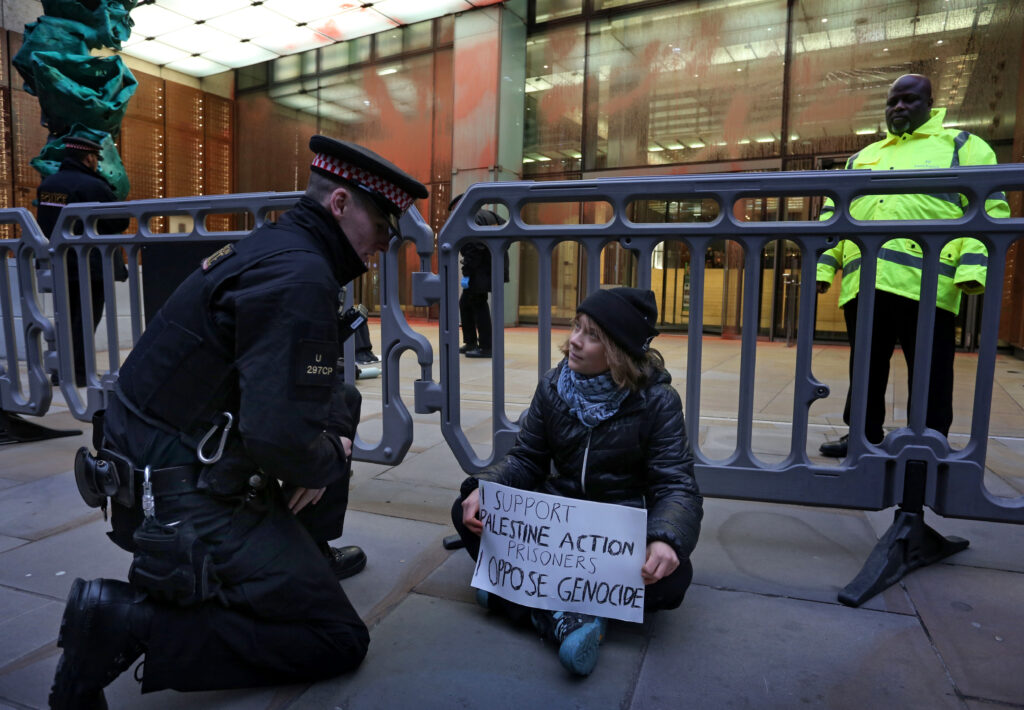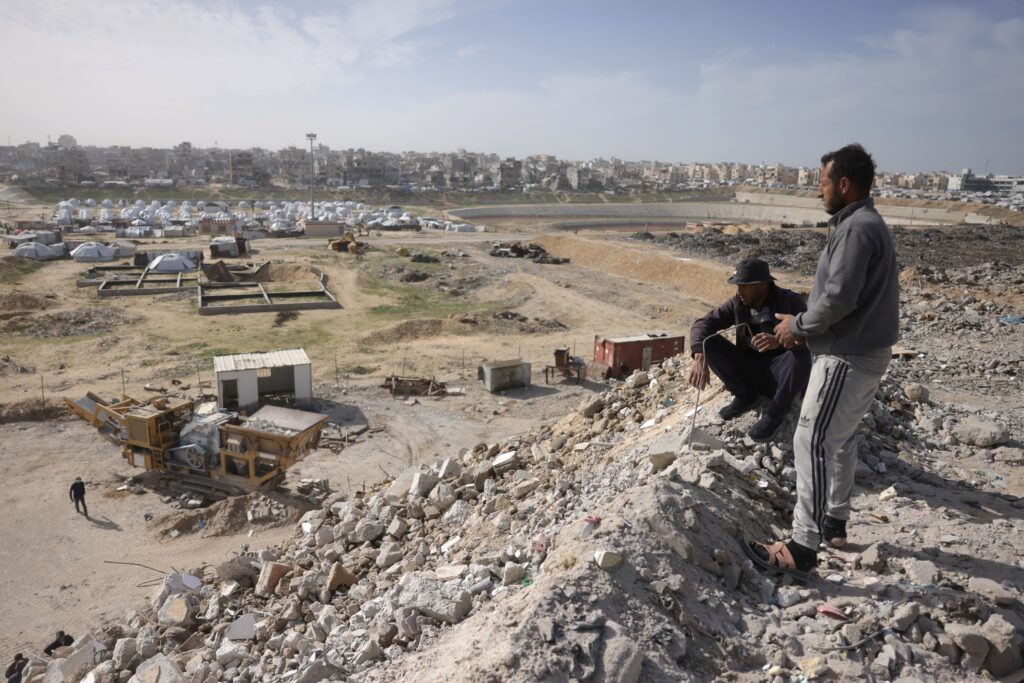Libya’s top military chief killed in plane crash in Turkey
The head of Libya’s armed forces and four other high ranking military officials died late Tuesday when their business jet crashed shortly after taking off from Ankara, officials in Turkey’s capital and Tripoli said.The wreckage of their Falcon 50 aircraft was located by Turkish security personnel in the Haymana district near Ankara, Turkish Interior Minister Ali Yerlikaya said. Three crew members were also killed.Libya’s Prime Minister Abdulhamid Dbeibah said on his Facebook page: “It is with deep sadness and great sorrow that we learnt of the death of the Libyan army’s chief of general staff, Lieutenant General Mohammed al-Haddad.”Haddad earlier Tuesday held talks in Ankara with Turkish Defence Minister Yasar Guler, and his Turkish counterpart, Selcuk Bayraktaroglu, and was returning to Tripoli.Yerlikaya said on X that Haddad’s jet took off from Ankara’s Esenboga airport at 1710 GMT, and “contact was lost” 42 minutes later.The aircraft issued an emergency landing notification near Haymana — 74 kilometres (45 miles) from Ankara — but contact could not be reestablished, the minister said. A senior Turkish official said the plane requested an emergency landing because of electrical failure 16 minutes after it took off. The jet carried eight passengers including Haddad, four members of his entourage and three crew members “reported an emergency to the air traffic control centre due to an electrical failure, asking for an emergency landing,” Burhanettin Duran, head of the presidency’s communications directorate, said on X. Turkish Justice Minister Yilmaz Tunc said the Ankara chief prosecutor’s office has launched an investigation into the incident. -‘Like a bomb’-Several Turkish media outlets broadcast images showing the sky lit up by an explosion not far from the location where the aircraft sent a signal.Burhan Cicek, a local in Haymana, recalled the moment when the plane crashed. “I heard a big sound of explosion. It was like a bomb,” he told AFP. Libya’s ambassador to Ankara was also at the site. Walid Ellafi, Libyan minister of state for communication and political affairs, told local television channel Libya al-Ahrar that the Turkish government informed his government of the incident. “We received a call from the Turkish authorities immediately after the incident, reporting that contact with the aircraft had been lost,” the minister said. “All contact with the aircraft was lost about half an hour after takeoff from Ankara airport due to a technical problem,” he said. “We are awaiting the conclusions of the Turkish investigation, and it appears that the plane crashed.”The minister said the others on the aircraft were Haddad’s advisor, Mohammed Al-Assawi, as well as Major General Al-Fitouri Ghraibil, Major General Mohammed Jumaa, and their escort, Mohammed Al-Mahjoub.Haddad had been the army’s chief of general staff since August 2020 and was appointed by then-prime minister Fayez al-Sarraj.Libya is split between a UN-recognised government in Tripoli, led by Dbeibah, and commander Khalifa Haftar’s administration in the east.The North African country has been divided since a NATO-backed revolt toppled and killed longtime leader Moamer Kadhafi in 2011.Turkey has close ties with the UN-backed government in Tripoli, to which it provides economic and military support and there have been frequent visits between both sides. But Ankara has recently also reached out to the rival administration in the east, with the head of Turkey’s intelligence agency, Ibrahim Kalin, meeting with Haftar in Benghazi in August.burs-fo/gv



